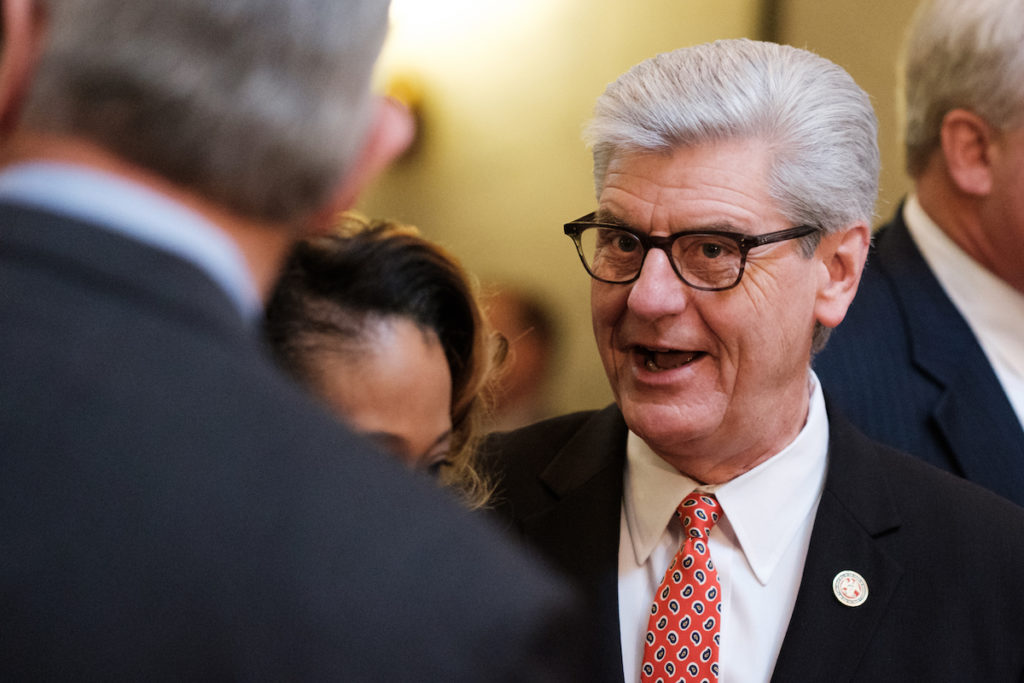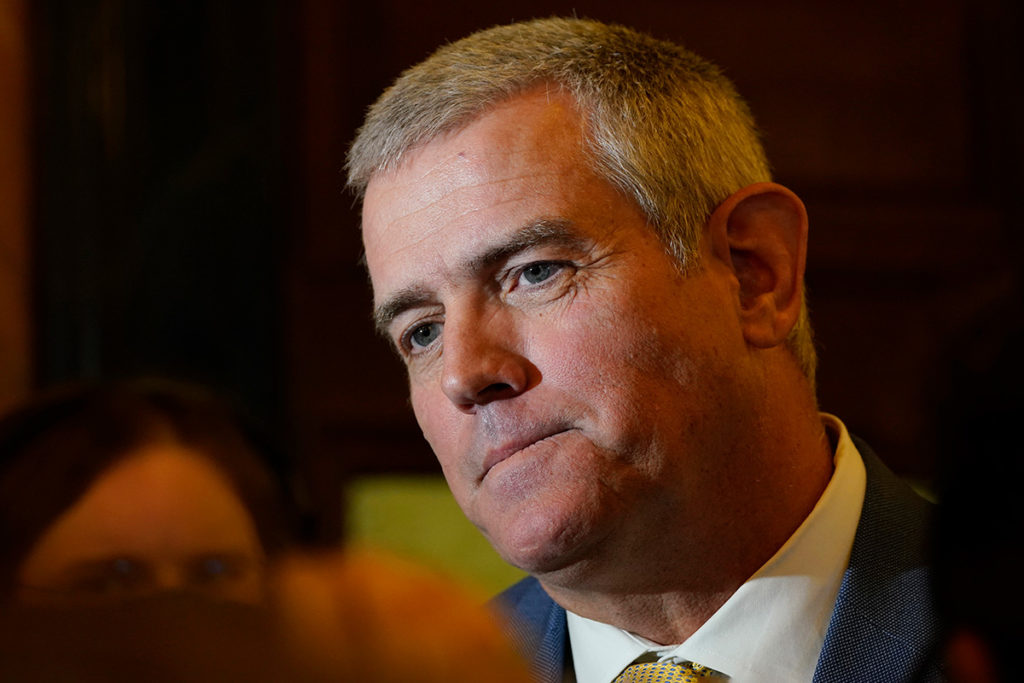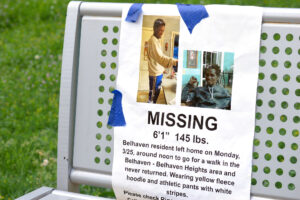Mississippi House Speaker Philip Gunn said last week that Mississippi residents could “rest assured” that “the Mississippi House of Representatives would not move legislation banning contraceptives forward.” The Republican speaker made the remarks a day after Gov. Tate Reeves told a national TV host that banning contraception “is not what we are focused on at this time.”
“Governor Reeves’ recent interviews have caused confusion regarding the future of contraceptives in Mississippi after a ruling on the Dobbs case,” Gunn said on May 9. “However, the scaremongering on the left intended to make pro-life states look extreme won’t work.”
But in 2011, Gunn, who was then a member of the House’s Republican minority, endorsed the Personhood Amendment, a ballot initiative effort that would have banned all abortions “from the moment of fertilization, cloning, or the equivalent thereof.” Reproductive rights groups at the time pointed out that the ballot initiative’s broad language would have also banned several types of contraception, including IUDs and Plan B and made in-vitro fertilization practically impossible.
IUDs and Plan B, also known as the morning-after pill, can stop fertilized eggs from implanting in the womb, thus preventing a pregnancy. But because Initiative 26, the Personhood Amendment, would have defined even fertilized eggs as “persons” with legal protections, such birth-control measures would have been illegal.
‘Birth Control Methods Which Act As Abortifacients’
On the Yes On 26 website in 2011, the Personhood Amendment’s supporters said they did not take a position on birth-control methods “which are contraceptive rather than abortive in their actions,” but were “opposed to those birth control methods which act as abortifacients,” including “forms of the pill which act to prevent implantation of the newly formed human into the lining of the womb; forms of the IUD, which can act the same; and prostaglandin suppository drugs, which act to cause delivery of whatever size baby the uterus contains.”

The campaign website described that the morning-after pill acts as a “human pesticide” and explained that the Personhood Amendment included no rape or incest exceptions because “abortions for rape victims does not solve a woman’s problems, it only creates more.” While Yes On 26 claimed the amendment would not ban abortions in cases where they are necessary to save a pregnant person’s life, the amendment did not specify any exceptions, including to save a woman’s life.
Alliance Defending Freedom, the evangelical Legal Organization that drafted Mississippi’s 15-week abortion ban at the center of the current U.S. Supreme Court case, has similarly described Plan B as an “abortion-inducing drug.” ADF argues that pharmacists should have the right to refuse to fill such drugs based on their religious beliefs.
‘You Are No Longer An Autonomous Being’
Laurie Bertram Roberts, the co-founder of the Mississippi Reproductive Freedom Fund and executive director for the Yellowhammer Fund in Alabama, told the Mississippi Free Press today that she believes the state’s Republican leaders will move toward a “personhood” style law that grants protection to fertilized eggs.
“They wouldn’t need to do this whole tap-dancing around answering questions about contraception if they weren’t in line with fetal personhood,” she said. “They’re telling on themselves because if you don’t believe in this very warped view of fetal personhood from the moment the egg is fertilized, then you wouldn’t be worried about IUDs or Plan B or IVF at all,” she said.

Asked about Gunn’s claim that “the Mississippi House of Representatives would not move legislation banning contraceptives forward,” Roberts said “they don’t have to move directly in order to ban contraceptives.”
“You always have to listen to what they say and what they don’t say,” she said. “He didn’t say we won’t move to do fetal personhood. He didn’t say we won’t put forth any bills that would endanger contraception. He said we would not be doing any bills targeting contraception, right? We have a lot of attorneys in our Legislature and they are very smart at wordsmithing. Oh, you wouldn’t? Ok. Well, you haven’t. But it doesn’t mean y’all won’t.”
Roberts said she would need Gunn and others to directly vow not to pass any fetal personhood bills, which would indirectly endanger contraception.
“Because they would say, ‘This is a bill defining life.’ … The same way they’ve done with abortion over and over again: ‘This isn’t about women and their bodies, this is about babies.’”
The possible ramifications of a “personhood” law that makes a fetus’ life legally equal to that of a pregnant person could extend far beyond contraception, IVF and abortion, she added.
“If the fetus you’re carrying is equal to you, your doctors can go, ‘Oh, well, the fetus needs this,’ and force you to have surgery. They can force you not to have a home birth because they say it’s too risky,” she said. “If your home birth goes wrong, who says you won’t be charged with murder because of ‘child endangerment’?”
“For people who don’t even feel like they are attached to the abortion issue, it will impact everything that has to do with pregnancy. If you’re pregnant and find out you have cancer, are you going to be able to get treatment or not? Who gets to decide? You, a judge or the doctor? …That’s what fetal personhood means. Your body is no longer your own while you are pregnant. You are no longer an autonomous being.”
Personhood-Style Legislation Lives On
Speaker Gunn’s office did not respond to a request for comment on Friday. An archived copy of the Personhood Amendment website lists his name under its endorsement section in addition to 20 other state and local leaders from both parties, including 15 Republicans and four Democrats.
Then-Lt. Gov. Phil Bryant, who ran as the Republican nominee for governor that year, was a co-chairman for the Yes On 26 campaign. He won the election for governor in November 2011, even as 58% of Mississippians voted to reject the Personhood Amendment. His Democratic opponent, Johnny DuPree, also supported the Personhood Amendment, but now as a congressional candidate describes himself as “pro-choice.”

DuPree was not listed on the Personhood website’s official list of endorsees, but then-Mississippi House Speaker Billy McCoy, a Democrat, was.
Several Personhood Amendment endorsees remain in office, including Mississippi Sen. Chris McDaniel, R-Ellisville; Mississippi House Rep. Lee Yancey, R-Brandon, and Mississippi House Rep. Chris Brown, R-Nettleton. U.S. Sen. Cindy Hyde-Smith, who at the time was a Republican member of the State Senate, also endorsed the amendment. Lucien Smith, who ran unsuccessfully for state treasurer that year, also endorsed Initiative 26; he later served as Mississippi GOP chairman from 2017 to 2020.
Though Mississippi voters rejected the Personhood Amendment, the Legislature continued passing anti-abortion legislation in an effort to trigger a federal lawsuit that could lead to the overturn of Roe v. Wade; a leaked draft of a U.S. Supreme Court ruling in the case over Mississippi’s 2018 ban on abortions after 15-weeks, Dobbs v. Jackson Women’s Health Organization, shows the conservative majority is poised to do just that.
In Congress, three U.S. House representatives from Mississippi are among 150 Republicans who are currently sponsoring H.R. 1011, The Life At Conception Act, a piece of legislation similar to Mississippi’s Personhood Amendment. It would grant 14th Amendment protections “for the right to life of each born and preborn human person” nationwide and define “human person” as “each and every member of the species homo sapiens at all stages of life, including the moment of fertilization, cloning, or other moment at which an individual member of the human species comes into being.”
The 150 Republicans who support the bill make up 72% of the House GOP caucus. The legislation currently has no path forward in the Democratic-led House, but that could change if voters give Republicans the majority in November’s congressional elections. The Mississippi sponsors are: Reps. Trent Kelly, Michael Guest and Steven Palazzo.
A Senate version of the Life At Conception Act authored by Sen. Rand Paul has 18 sponsors, or more than half the Senate’s GOP membership, including U.S. Sen. Roger Wicker of Mississippi. Democrats currently control the U.S. Senate, which is split 50-50 between the two parties, thanks to Vice President Kamala Harris’ tie-breaking vote.
Though Gov. Reeves and Speaker Gunn have brushed off questions about banning contraceptives as liberal fearmongering, Louisiana Republicans advanced a bill this month defining “personhood” as beginning at fertilization and criminalizing abortions as homicides. The state’s anti-abortion Democratic governor, John Bel Edwards along with several anti-abortion groups have condemned the legislation for going too far.
“Anything that would prevent a fertilized egg from turning into a pregnancy and being born into a baby could be considered a homicide,” Cathren Cohen, a scholar of law and policy at the UCLA Law Center, told NBC News. “If you define a pregnancy and you define a person as including just this fertilized egg, then technically you are legislating that an IUD can cause an abortion.”
Mississippi Trigger Would Ban Most Abortions
Amid uproar over the leaked draft, Republicans have sought to downplay fears that abortion or contraceptives could be banned or severely restricted nationwide. In a tweet, U.S. Sen. Marsha Blackburn, a Tennessee Republican, claimed on May 11 that “overturning Roe v. Wade would not ban abortion” but would simply “send the decision back to your state.” She did not mention that she is a sponsor of the Life At Conception Act, which would ban abortion nationwide.

Since news of the court’s intention to overturn Roe v. Wade leaked, congressional Democrats have attempted to pass legislation codifying Roe v. Wade’s protection for abortion rights into federal law. Though the bill passed the House, it failed in the Senate, where all 50 Republicans and one Democrat, Joe Manchin, voted to block it from moving forward. Even if all 50 Democrats had voted in favor, though, it still would have needed 60 votes to overcome a Republican filibuster.
If Roe v. Wade is overturned, Mississippi would immediately ban almost all abortions at any point due to a 2007 trigger law, passed under a Democratic-led House and Senate, that would take effect, with exceptions only to save the life of the pregnant person and in some cases of rape if the victim reported the assault to police and sought an abortion early in the pregnancy. Earlier this month, though, Mississippi Sen. Joey Fillingane, a Sumrall Republican who authored the 2007 law, said he would like the Legislature to repeal all rape exceptions.
The U.S. Supreme Court is expected to issue a final ruling in the Dobbs case by mid-summer.
Correction: This story originally said Republicans controlled the Mississippi House when the Senate passed its abortion trigger law in spring 2007. Democrats controlled the Senate until Republicans won control in November 2007.










